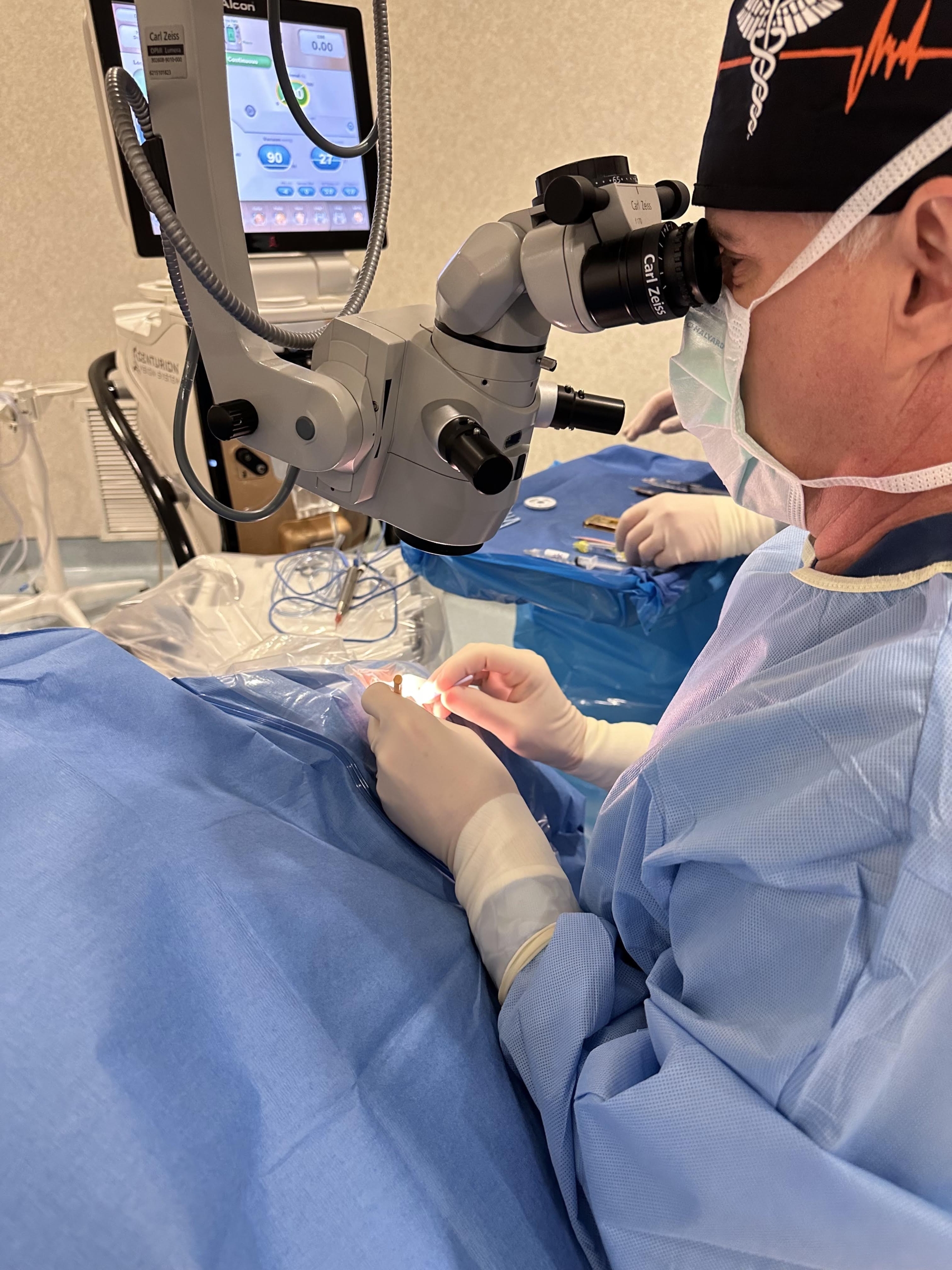Home / Eye Health /

Cataract Awareness Month is observed in June, aiming to raise awareness about cataracts and their impact on vision. Cataracts occur when the lens in the eye becomes clouded, leading to symptoms like blurred vision, sensitivity to glare, and difficulty seeing at night.
Understanding preventive measures is crucial in reducing the risk of developing cataracts:
- Regular eye exams: Scheduling routine eye examinations enables early detection of cataracts, facilitating timely treatment and improved visual outcomes.
- Sun protection: Shielding your eyes from harmful UV rays by wearing sunglasses that block 99 to 100 percent of UV radiation helps minimize cataract formation.
- Avoid smoking: Smoking has been linked to an increased risk of cataracts, emphasizing the importance of refraining from tobacco
- Healthy diet: Consuming a nutritious diet rich in fruits, vegetables, and whole grains supports overall eye health and helps protect against cataracts.
If diagnosed with cataracts, various treatment options are available, with cataract surgery being the most common and effective approach to restore vision.
Cataract surgery can be performed using two primary techniques: laser-assisted or traditional blade methods. Laser cataract surgery has gained popularity due to its perceived safety advantages, including easier removal of the cataract nucleus, treatment of astigmatism, and reduced risk of complications.
When considering cataract surgery, the size of the cataract is an important factor to consider. Generally, smaller cataracts are easier to remove and have a lower risk of complications. In some cases, individuals with smaller cataracts may choose to monitor their condition and delay surgery until it significantly affects daily activities like reading or driving.
However, if a cataract causes noticeable vision impairment, such as blurred vision, glare, or difficulty seeing at night, it may be advisable to proceed with surgery, even if the cataract is relatively small. Ultimately, the decision should be made in consultation with an eye care professional who can assess the specific circumstances and provide guidance on the most appropriate course of action.
There are various options for lens implants during cataract surgery. To determine the best choice for you, it is recommended to discuss with your eye doctor, taking into account your eye health and lifestyle goals.
Remember, cataracts are a treatable condition, and cataract surgery can significantly improve visual acuity and overall quality of life. If you have any concerns or questions regarding cataracts, consult with your doctor or ophthalmologist, who can offer personalized advice based on your individual situation.
More information about cataract surgery and lens implant options: www.erielasereye.com/home
Also:https://www.aao.org/eye-health/diseases/what-is-cataract-surgery

